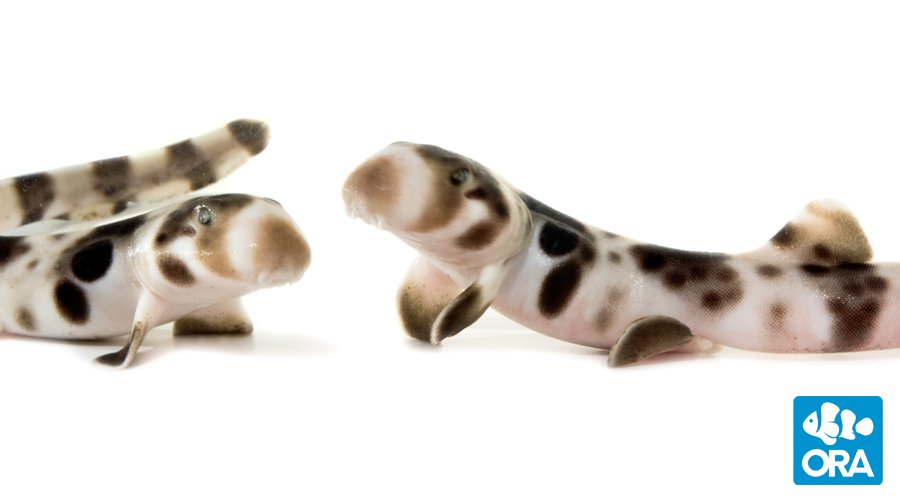ORA Epaulette Shark pups are a new addition to the growing list of ORA aquacultured fish. The Epaulette Shark, Hemiscyllium ocellatum, is a benthic shark species with a beautiful spotted pattern and a characteristic pair of large spots above their pectoral fins. This conspicuous marking resembles the shoulder décor used on military uniforms to signify rank, lending the “epaulette” term to their common name. Adults reach a maximum size of 32 inches, making them an excellent choice for advanced aquarists looking to keep a shark.
Native to the shallow reefs of Northern Australia and New Guinea, this shark species has evolved extraordinary adaptations to survive the harsh, fluctuating environment of tide pools and coral flats. As the tide goes out and isolated pools of water form, the Epaulette shark exploits their confines as easy hunting grounds. In a motion similar to land based amphibians, Epaulettes can use their paired pectoral and pelvic fins as arms and legs to maneuver around coral and rock formations. They can also tolerate high temperatures and very low oxygen levels as exposed tide pools become increasingly more inhospitable.
We consider the Epaulette Shark to be an expert only animal. They must be provided with a low stress environment with limited disruption, an easy to consume diet with multivitamin supplementation and excellent water quality. Despite their relative small size and relaxed disposition, a full sized Epaulette will need to be housed in a tank with a minimum size of 200 gallons and carefully chosen tank mates. We strongly urge anyone looking to keep a shark to thoroughly research the species prior to purchase. This is a long term commitment!
Our Epaulette parents arrived at ORA in 2013 as large juveniles and took several years to reach sexual maturity. First housed in a 15 foot round fiberglass tank with coarse sand substrate, they were given even more space as they continued to grow and now reside in a 15 foot by 25 foot raceway with sand and structures for shelter. They eat a large quantity of vitamin enriched squid and shrimp three times per week.
Check out the species profile page for more info and photos.



